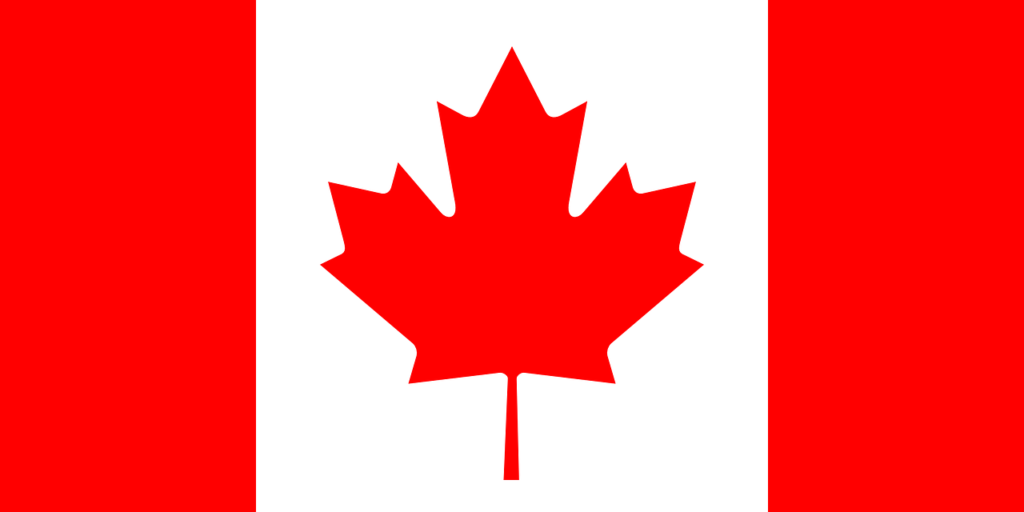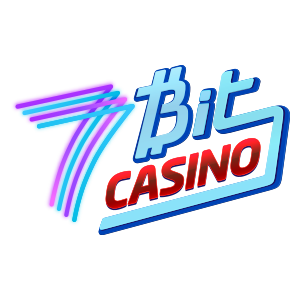
Canada Gambling Regulations
Table of contents
Gambling Regulations for Online Casinos in Canada
When most people think of Canada, gambling may not immediately come to mind. However, the country is quite the hotspot for online casinos and gaming, making it an ideal choice for gamblers worldwide. However, while Canada welcomes online gaming today, it had a long and sordid history of prohibition. In this article, we're going to look at the gambling regulations for online casinos in Canada. Here is what you need to know.
A Brief History of Online Gambling in Canada
For many years, Canada prohibited gambling of all kinds. The country was far less appreciative of the industry, and many forms of gambling were outlawed for almost 100 years. The prohibition began way back in 1892 when the Criminal Code was enacted. At the time, gambling was seen as an offense to religion, morals, and public conveniences. Oddly enough, however, horse racing was exempt from this law, making racetracks the go-to spot for betting for many years. As a result of the Criminal Code, horse racing became part of the Canadian landscape. Today, there are over 40 racetracks across the country that offer betting, both online and in-person.
It wasn't until 1969 that the Code was reversed, albeit slightly. At the time, only lotteries were allowed, as they helped various municipalities raise funds for public needs. Finally, in 1985, the federal government turned gambling regulations over to the provinces. What was most notable about this law is that it covered both in-person and online gaming, even though computers were still new and the internet hadn't been invented.
Post-1985, the country saw a massive boom in land casinos and online betting. Today, all forms of gambling are as popular as ever, although Canadians still have a special place for horse racing. When you break down the demographics, sports gambling is number one with 37 percent of overall earnings. In second place are slot machines with 28 percent, and the rest of the casino games make up the rest.
To help put Canada's gambling history in perspective, here is a quick timeline of notable events:
- 1892 – Criminal Code passed, making all non-horse racing gambling illegal.
- 1901 – Nonprofit gambling (i.e., charity raffles) approved.
- 1969 – Criminal Code altered to allow for-profit lotteries.
- 1974 – The first for-profit lottery, which was used to raise money for the 1976 Olympic Games in Montreal.
- 1976 – Sports lotteries were approved under the Criminal Code.
- 1985 – The federal government allows provinces to dictate their own gambling laws, both for in-person and digital betting.
- 1991 – The first Video Lottery Terminals (VLTs) approved in eight of the 10 Canadian provinces.
- 1991 – The first commercial casino, Crystal Casino, opens to the public.
- 1996 – Online gambling approved. Shortly after, the Kahnawake Gaming Commission is formed as one of the first gambling authorities for online casinos, not just in Canada but globally.
- 1998 – Dice games are now legal, having still been prohibited.
Is Online Casino Gambling Legal in Canada?
In a word, yes. Since 1985, online gaming has been allowed in all 10 provinces, although each one sets its own rules and regulations. That said, there is a crucial distinction between Canada-based casinos and “offshore” casinos.
All casino operators within the country have to be licensed by one of the gambling regulatory commissions (more on those later). Otherwise, the casino is illegal. Offshore online casinos, however, have no such requirement.
Overall, Canadians don't have to worry about prosecution when playing at either a local or offshore online casino. Because there is no law explicitly prohibiting offshore gaming, many international websites allow Canadian players.
Technically speaking, the country is a “gray” market, meaning that gambling at international casinos is neither legal nor illegal. By comparison, in the United States, offshore gaming is illegal, making it a “black” market. If the practice is legalized in Canada, it would become a “white” market.
Another point to consider is that since each province has its own laws for online casinos, lotteries, and sports betting, residents have to use licensed gaming sites within their province. For example, if you live in Manitoba, you can't play at an Alberta online casino. These sites have geofencing, meaning that they gather location data from your computer or device to determine whether you're eligible to play.
Province-led online casinos are relatively limited when compared to offshore sites. Geofencing also discourages Canadians from playing at provincial casinos since there are so few options. As a result, most players choose offshore gambling. Because of this, some provinces are starting to increase their gaming alternatives to attract more local players.
Regulations Regarding Online Casinos Canada
Although individual provinces determine most gambling regulations, the federal government still maintains several laws regarding gambling, both online and in-person. Here is an overview of the various codes that cover gaming in the country:
- Code 201 – Anyone who keeps a “common” betting or gaming house can be arrested and indicted. Common gaming houses are different than licensed casinos and are therefore illegal. For example, if someone runs casino tables in a garage.
- Code 202 – This code refers to illegal betting, specifically pool-betting (AKA parimutuel). This law is designed to prohibit unlawful bookies and betting houses.
- Code 203 – This law prohibits placing bets on behalf of others.
- Code 206 – Non-sanctioned lotteries are prohibited, as well as specific games of chance. Games listed in the law include Three-Card Monte, punch cards, and Wheels of Fortune. That said, there are quite a few exemptions, including nonprofit organizations and licensed betting facilities.
- Code 209 – This code relates to cheating at games of chance with the intent to defraud other players or the house.
You can read more about these codes and their various regulations here.
One interesting thing to point out about Canadian gambling regulations is that sports betting is parlay only, meaning that bets are part of a larger pool rather than against the house. True sports betting is illegal in the country, although some legislators are looking to change that.
Gambling Regulations By Province
As we mentioned, all 10 provinces have their own rules and gaming commissions that oversee gambling, both online and in-person. Here is a rundown of how gambling rules differ in each province.
Alberta
- Regulatory Commission: Alberta Gaming, Liquor, and Cannabis Commission (AGLC)
- Number of Casinos: 28
- Legal Gambling Age: 18
- Online Gambling Website: Play Alberta
Alberta has one of the highest concentrations of casinos, with 24 Vegas-style options. The other four casinos only offer machine-based gameplay, including slots and video poker. Video Lottery Terminals (VLTs) are also abundant, with 6,000 in the province. VLTs are legal in most liquor establishments, including bars and liquor stores.
Although you can't engage in online lotteries in Alberta, the province does participate in the Western Canada Lottery Corporation, which spans multiple provinces.
British Columbia
- Regulatory Commission: British Columbia Lottery Corp.
- Number of Casinos: 34
- Legal Gambling Age: 19
- Online Gambling Website: Play Now
If you prefer playing on VLTs, you shouldn't come to BC. The province has none, but it does have 34 casinos. That said, only 18 of those casinos have table games, while the rest stick to slots and other gambling machines. You can play virtual lotteries in BC, though.
Manitoba
- Regulatory Commission: Liquor, Gaming, and Cannabis Authority of Manitoba
- Number of Casinos: 5
- Legal Gambling Age: 18
- Online Gambling Website: Play Now
Manitoba has a special place in Canada's gambling history as it was the site for the first commercial casino in 1991 – Crystal Casino. Unfortunately, Crystal went under in 1999, but there are still five Vegas-style casino options within the province.
In Manitoba, you can play VLTs and participate in the Western Canada Lottery Corporation both online and in-person. This is the only province that offers online lottery tickets for the WCLC.
New Brunswick
- Regulatory Commission: New Brunswick Lotteries and Gaming Corp.
- Number of Casinos: 2
- Legal Gambling Age: 19
- Online Gambling Website: Atlantic Lottery
As one of the smallest provinces in Canada, there are fewer options for gambling. The region only has around 2,000 VLTs and two casinos, only one of which offers table games. Despite its name, the province's online gaming website provides more than just lottery games. You can also play slots and classic casino games on it.
Nova Scotia
- Regulatory Commission: Nova Scotia Gaming Corp.
- Number of Casinos: 2
- Legal Gambling Age: 19
- Online Gambling Website: Atlantic Lottery
Nova Scotia is very much like New Brunswick when it comes to gambling, both online and in-person. Although there are only two casinos in the region, recent data shows that most residents (almost 74 percent) regularly gamble. A significant reason for the high participation rate is that the province uses all gaming profits for public programs and services.
Ontario
- Regulatory Commission: Ontario Lottery and Gaming Corp.
- Number of Casinos: 28
- Legal Gambling Age: 19
- Online Gambling Website: Ontario Lottery and Gaming (OLG)
While Ontario is the unofficial capital of gambling for Canada (with 39 percent of the country's gamblers), it doesn't have any VLTs. Instead, residents can visit one of the 28 casinos, four of which are resort-style. Only five of the casinos stick to machine-based gameplay, with the rest opting for Vegas-style attractions and table games.
OLG is one of the better online gambling sites in the country as it's run by IGT software, a powerhouse within the industry.
Prince Edward Island
- Regulatory Commission: Prince Edward Island Lotteries Commission
- Number of Casinos: 2
- Legal Gambling Age: 19 for casinos, 18 for lotteries
- Online Gambling Website: Atlantic Lottery
Prince Edward Island is the smallest Canadian province with a population of roughly 157,000. However, it still has two casinos on the island and around 300 VLTs, making it an ideal spot for gamblers of all types. It also uses the Atlantic Lottery website for online gaming, which covers lotteries, virtual slots, and digital table games.
Quebec
- Regulatory Commission: Loto-Quebec
- Number of Casinos: 4
- Legal Gambling Age: 18
- Online Gambling Website: Loto-Quebec
Quebec has been at the forefront of gambling since 1970, making it a premier destination for players. The province also has the largest casino in the country, the Casino de Montreal. This site has over 3,000 slot machines and 100 table games. Quebec also has the most number of VLTs with over 12,000.
Loto-Quebec offers all online casino games, and it's an excellent resource for looking up Canadian gambling regulations.
Saskatchewan
- Regulatory Commission: Saskatchewan Liquor and Gaming Authority
- Number of Casinos: 9
- Legal Gambling Age: 19
- Online Gambling Website: None
Saskatchewan is an outlier in online gaming since the province doesn't have its own online casino. Instead, residents have to play at offshore websites to get their fix. The Gaming Authority controls only two of the nine casinos. The other seven fall under the jurisdiction of the Saskatchewan Indian Gaming Authority.
As with Nova Scotia, Saskatchewan uses gambling to fund public services, mainly through VLTs. On average, the province rakes in around $150 million from just over 4,200 machines.
Yukon Territory
- Regulatory Commission: Yukon Lottery Corp.
- Number of Casinos: 1
- Legal Gambling Age: 19
- Online Gambling Website: None
If you're unfamiliar with Canada's geography, the Yukon Territory is the wild frontier, covering the far west corner of the country (it borders Alaska in the U.S.). Due to its low population and untamed wilderness, the province doesn't have much to offer for gamblers.
However, it is notable for being the site of the first gambling hall (different than a casino). Diamond Tooth Gertie's has been open since 1971 and has become one of the only go-to attractions in the region. Other than Gertie's, the only gambling available is through a provincial lottery program. Yukon has no online gaming nor VLTs, even though they are technically legal.







